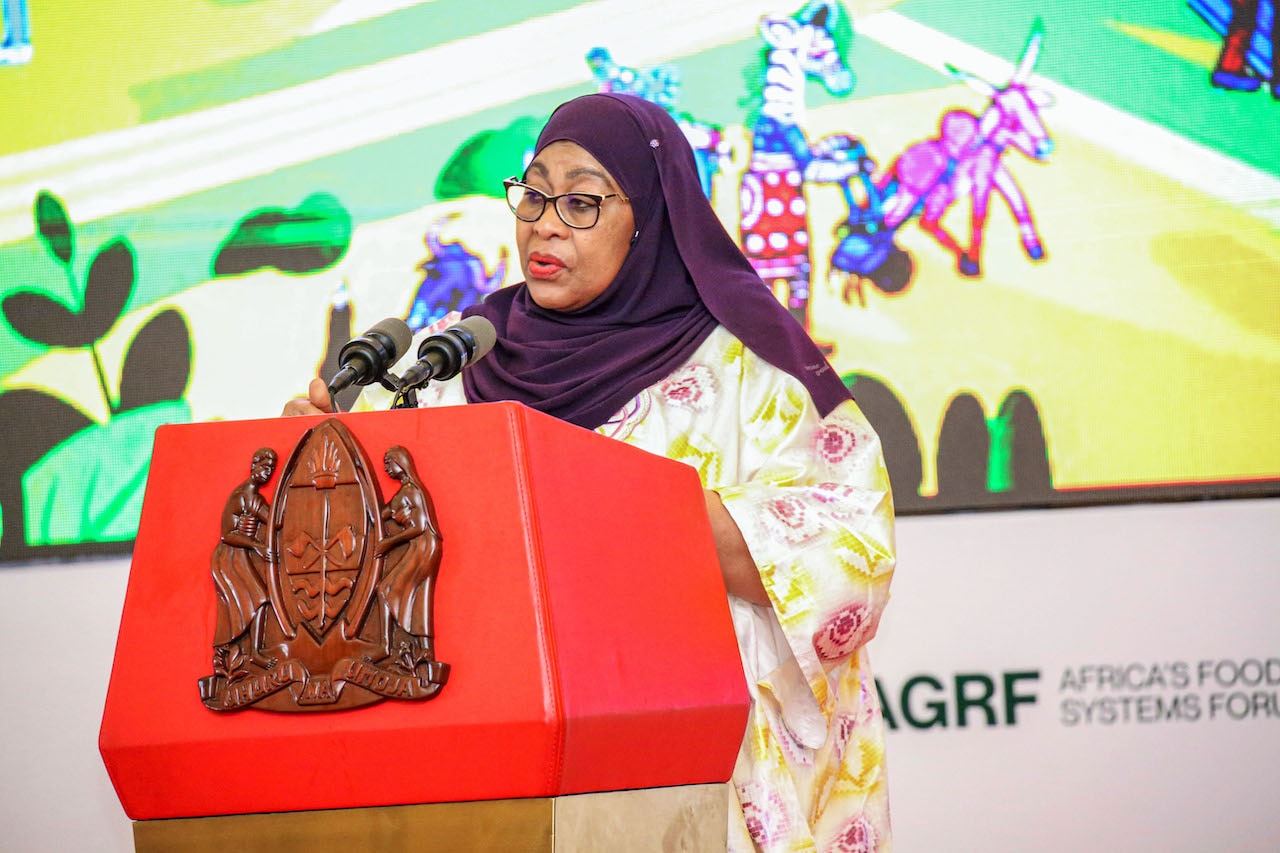Ruvuma, Tanzania – September 28, 2024
In a decisive move aimed at bolstering the agricultural sector, President Samia Suluhu Hassan has directed the Ministry of Agriculture to introduce reforms that will simplify farmer payments and enhance market access. The President announced these changes during her visit to Ruvuma, where she addressed farmers and local leaders at a public rally held at Majimaji Stadium in Songea.
As part of the new directives, President Samia instructed that starting from the upcoming harvest season, all payments to farmers will be processed directly through Primary Cooperative Societies (AMCOS) instead of being routed through various farmer groups. This change is designed to eliminate delays and excessive deductions that have historically burdened farmers. The new system is expected to ensure that farmers receive their payments promptly and in full.
Enhancing Transparency and Market Stability
In a bid to further stabilize the agricultural market and ensure transparency, President Samia highlighted the continued use of the Warehouse Receipt System (WRS) and the Tanzania Mercantile Exchange (TMX). These platforms will enable farmers to sell their produce through a secure and transparent system that guarantees fair pricing and provides them with real-time market information.
The President emphasized that digital innovations in trading will simplify the process for farmers to access market data and help Tanzania position its agricultural produce competitively on international markets. This is a step towards strengthening the agricultural value chains and enabling Tanzanian crops to meet global standards.
Strengthening Food Security with NFRA
Addressing food security, President Samia outlined measures being undertaken by the National Food Reserve Agency (NFRA). The President announced that the NFRA will be purchasing 170,000 tonnes of maize from Ruvuma’s farmers as part of efforts to maintain food reserves and secure market prices for local farmers. This procurement is aimed at providing a safety net for farmers and ensuring that surplus produce is stored effectively to meet national food security needs.
Scaling Up Irrigation and Agricultural Mechanization
President Samia reaffirmed the government’s commitment to expanding irrigation infrastructure, setting a target for 50% of Tanzania’s arable land to be under irrigation by 2030. In Ruvuma, the government has launched three irrigation projects aimed at enhancing water efficiency and ensuring consistent crop production throughout the year. The projects will involve the construction and rehabilitation of key irrigation channels, and are expected to increase productivity and farmer income in the region.
Establishment of Agricultural Service Centers
In addition, the President revealed plans to establish agricultural service centers across food-producing regions, including Ruvuma. These centers will offer farmers subsidized tools, farming inputs, and access to services, helping to lower production costs and improve the profitability of smallholder farmers. This initiative is part of a broader strategy to modernize Tanzania’s agricultural sector and promote sustainable growth.
The press statement was signed by Sharifa B. Nyanga, Acting Director of Presidential Communications at the State House, Ikulu, emphasizing the government’s unwavering support for the agricultural sector and its role in driving national economic development.
President Samia Suluhu Hassan’s directive to reform the payment system for farmers was primarily in response to delays and challenges associated with the Tanzania Mercantile Exchange (TMX). During her address in Ruvuma, she acknowledged that the current payment mechanisms, particularly through Agricultural Marketing Cooperative Societies (AMCOS), were causing delays and leading to unexplained deductions. This situation has led to widespread dissatisfaction among farmers, prompting the need for an improved system.
The revised system will now involve direct payments to farmers through Primary Cooperative Societies (AMCOS), bypassing intermediary channels that have historically delayed payments. The President emphasized that this change aims to ensure timely payments and eliminate any unnecessary deductions, thereby safeguarding farmers’ earnings
)Moreover, the TMX platform, which was established to bring transparency to agricultural trading, has faced operational challenges that have resulted in delays for some farmers. However, the platform still remains a key tool for ensuring transparency in pricing and trading. President Samia reiterated the government’s commitment to using the TMX and the Warehouse Receipt System (WRS) for trading crops like sesame, pigeon peas, and soybeans, as part of broader agricultural market reforms.
These reforms are expected to streamline payment processes, boost farmer confidence in market systems, and enhance Tanzania’s overall agricultural sector by creating a more reliable and transparent trading environment
